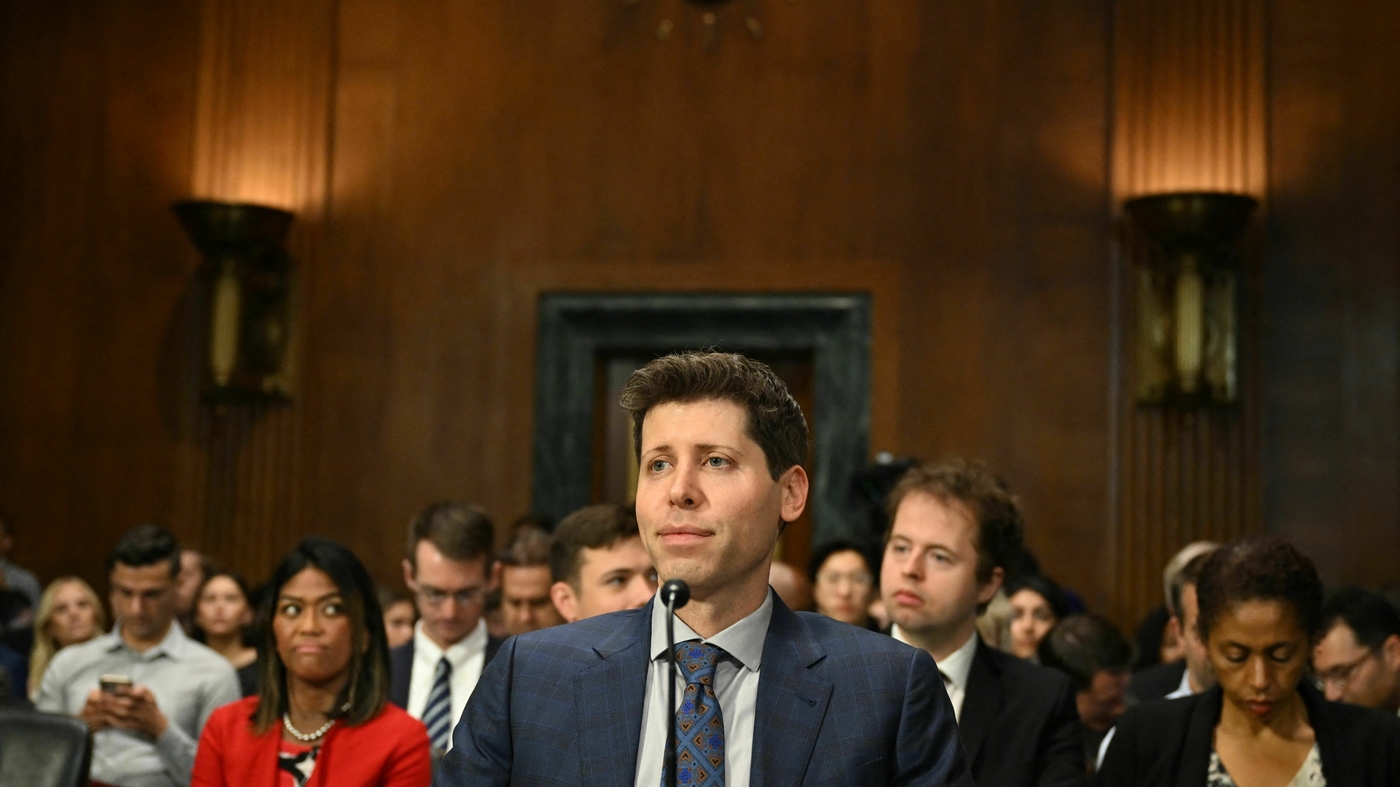Samuel Altman, Chief Executive Officer of OpenAI, observed the proceedings during a Senate Judiciary Subcommittee hearing on Privacy, Technology, and the Law concerning artificial intelligence in Washington, DC, on May 16, 2023.
Eight months ago, Sam Altman, CEO of OpenAI, the company behind ChatGPT, emphasized the necessity for legislation to enforce accountability among major players like Amazon, Google, and Microsoft, an investor in OpenAI.
Altman stressed the importance of thorough scrutiny on both OpenAI and its competitors due to the substantial resources required in this field. However, despite his recommendations in May 2023, the anticipated level of scrutiny and regulation has not materialized yet.
While significant advancements have been made in large AI models, such as the development of new antibiotics and facilitating human communication with whales, concerns have been raised regarding the potential for election fraud escalation and automated hiring bias.
In 2023, numerous renowned experts issued a statement highlighting the risks associated with AI, urging policymakers to address the looming threats proactively.
State Senator Scott Wiener of California revealed plans for legislation that could serve as a blueprint for other states, in the absence of comprehensive federal regulations. Wiener’s proposed bill, Senate Bill 1047, mandates safety testing for companies developing the most powerful AI models before their public release.
Drawing inspiration from the Biden Administration’s executive order on AI, Wiener’s ambitious proposal aims to ensure AI safety through stringent testing protocols and regulatory oversight. The legislation empowers California’s attorney general to take legal action in cases where AI technology poses significant risks.
Despite the proliferation of over 400 AI-related bills pending across 44 states, the concentration of major AI companies in the San Francisco Bay Area positions California’s legislative efforts as potential benchmarks in the industry.
As federal oversight remains lacking, industry initiatives have emerged to address AI concerns, including a collective pledge to combat deceptive AI usage in the upcoming 2024 elections globally. However, the voluntary nature of these efforts raises accountability issues, especially with the rapid advancements in AI technology exemplified by OpenAI’s recent introduction of the advanced text-to-video model, Sora.
In the absence of comprehensive federal regulations, regulatory bodies like the Federal Trade Commission are exploring ways to leverage existing laws to govern AI developers and prevent illicit activities. However, experts caution that relying solely on existing regulations may not suffice in addressing the evolving challenges posed by AI.
Lina Khan, Chair of the Federal Trade Commission, raised concerns about the potential consolidation of control by dominant firms in the AI sector, influencing the trajectory of technological development.
Hany Farid, a professor at UC Berkeley specializing in digital forensics, highlighted the limitations of state-level regulations in effectively governing the AI industry. Farid emphasized the need for unified federal regulations to prevent a fragmented regulatory landscape.
Grace Gedye, an AI policy analyst at Consumer Reports, acknowledged the necessity for proactive state-level initiatives in light of the current political climate’s slow pace in enacting federal AI regulations. Gedye underscored the importance of states taking the lead to address AI governance issues promptly.










